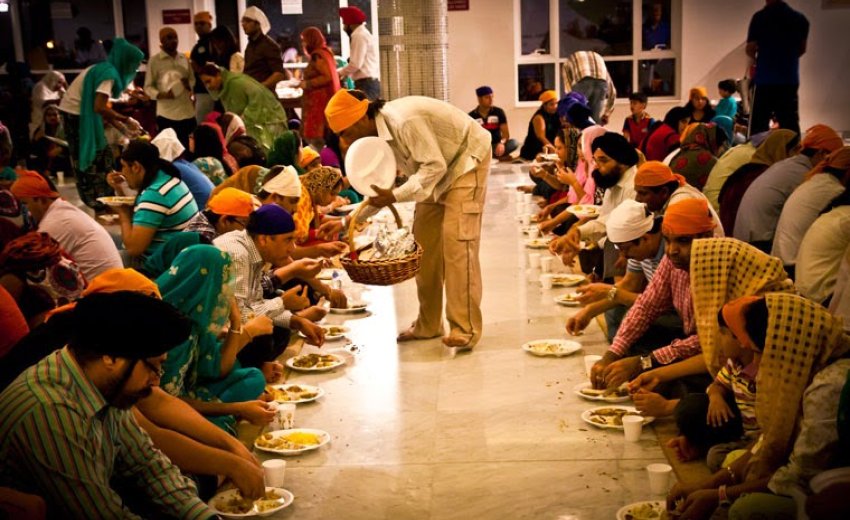In Sikhism, it is believed that God and His creation are not separate. Therefore, every Sikh's most important duty is to serve God by serving the people and things He has created. This idea is reflected in the prayers of Sikhs, such as Guru Arjan Dev, who prayed for the opportunity to serve God's people, considering it a blessing.
Seva: A core belief system of Sikhism
The act of service, known as "seva," holds a special and vital role in the Sikh community. Without seva, worship is incomplete. Serving others not only fosters love and care in one's heart but also helps to overcome one's ego, which is a major hindrance on the spiritual path. For a Sikh, a practical way of life includes meditation of the Name of God and engaging in acts of service for the betterment of humanity.
Seva takes various forms, such as assisting the less fortunate, giving charity, offering food and shelter, aiding those in distress, rescuing individuals in danger, or reading sacred texts for someone's comfort. These deeds are regarded as more significant than numerous rituals, ceremonies, mere meditation, or worldly knowledge, as emphasized by Bhai Gurdas. In Sikhism, seva stands as a cornerstone, highlighting the importance of selfless service and compassion towards all.
Seva, the act of selfless service, can take many forms, including physical work, emotional support, or material assistance. Among these, physical labour is highly regarded and is expected from every Sikh. The importance of dignifying all types of work is most evident in Guru ka Langar, the community kitchen, where members of the Sikh community come together to serve the sangat, the holy assembly. Langar exemplifies the unique blend of worship and seva, with opportunities to contribute by cutting vegetables, cooking, serving food and water, washing dishes, cleaning the area, caring for footwear, and even helping with food supplies.
The Langar Tradition
Langar is more than just a meal; it's a place where you learn about helping others and treating everyone equally. It teaches you to be humble and put aside your ego, a quality Sikhs value. Through seva, you can gain humility. In Sikh prayer, Ardas, we ask for the well-being of all, 'Sarbat da Bhala.' Being compassionate should also mean helping others in real ways, and serving God through His creation.
Serving others through material means should be a quiet and selfless act, aimed at benefiting the community and all of humanity, while also helping to humble one's ego. When helping others, it's not just the individual you're serving, but also God working through them. For example, in the Sikh tradition, when providing food to the hungry, it is customary to accompany the act with a prayer:
'The grain, O God, is your own gift. Only the seva is mine which please be gracious enough to accept.'
Service should be given selflessly, without expecting anything in return. When we desire a reward for our service, it becomes a transaction, losing its true essence. The Gurus teach us that genuine seva should be carried out with humility, a pure heart, and no expectations of rewards. Service, in its pure form, is a reward in itself and can lead to liberation. As the Guru Granth Sahib teaches, serving without expecting anything brings eternal bliss and a sense of inner peace as we merge with God.
*Based on an article by Kulbir Kaur, published in the Times of India on 2nd June 2009

